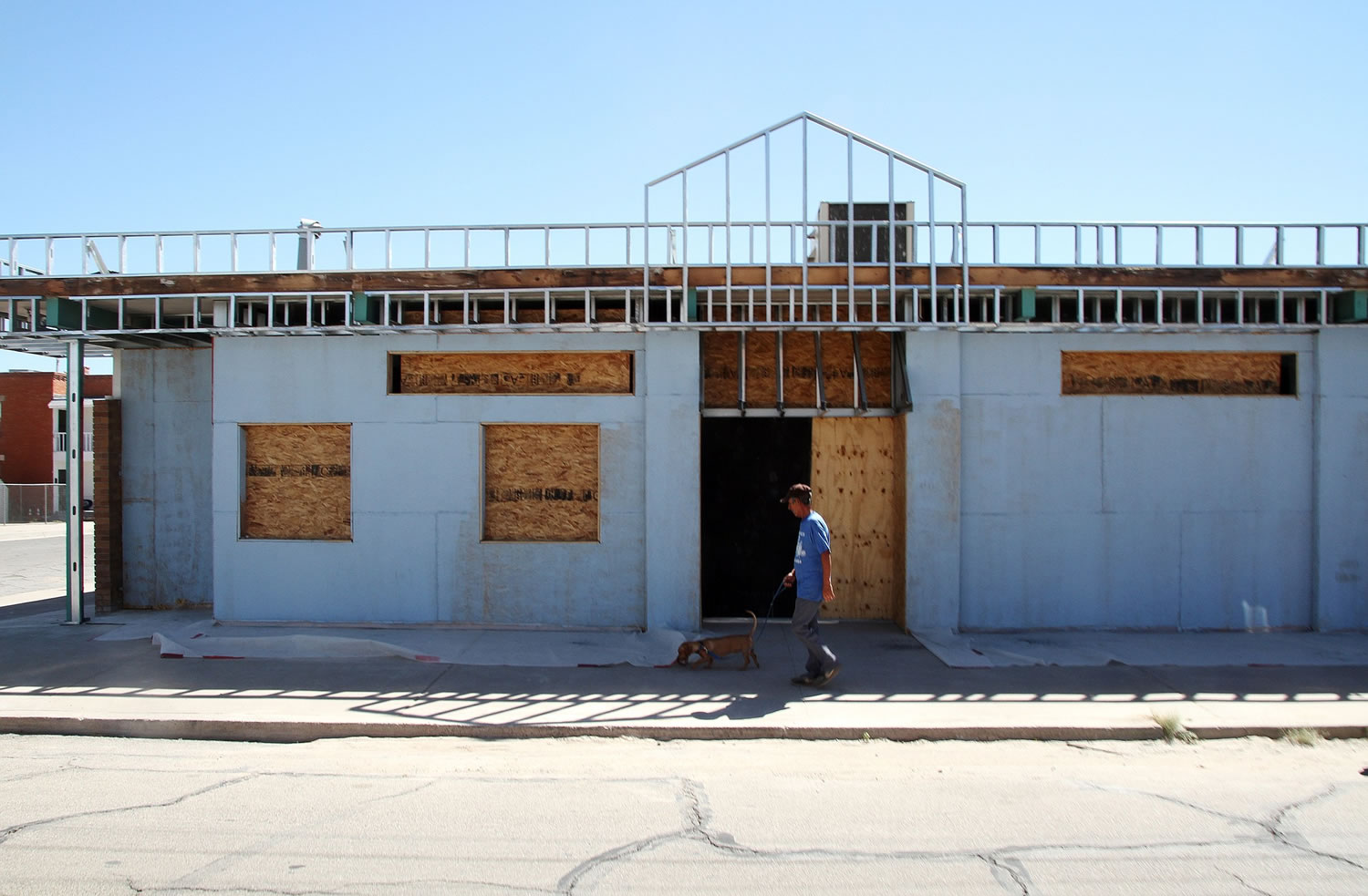EL PASO, Texas — Abortion-rights lawyers are predicting “a showdown” at the U.S. Supreme Court after federal appellate judges allowed full implementation of a law that has closed more than 80 percent of Texas’ abortion clinics.
As of Friday, abortion services for many Texas women required a round trip of more than 200 miles — or a border-crossing into Mexico or New Mexico.
Operators of some of the affected clinics and their lawyers from the Center for Reproductive Rights vowed to appeal Thursday’s decision by the 5th U.S. Circuit Court of Appeals in New Orleans that allows Texas to fully enforce a sweeping abortion law approved by the Republican-controlled legislature last year. They depicted the law — and similar measures proposed in other states — as an unacceptable infringement of the Supreme Court’s 1973 Roe v. Wade ruling establishing a nationwide right to abortion.
“This case is ultimately going to end up with the Supreme Court,” said the reproductive rights center’s president, Nancy Northup. “It is going to be a showdown … on whether the promise of Roe will have meaning in the United States.”
Two years ago, Texas had more than 40 abortion facilities. For now, no more than eight will be open, due to portions of the law that require abortion providers to obtain hospital admitting privileges and impose hospital-level operating standards on the clinics.
Among the clinics affected by Thursday’s ruling were a facility in the south Texas city of McAllen that served women in the Rio Grande Valley and the last remaining abortion clinic in the western city of El Paso, whose future was in limbo. The only other remaining clinics in the nation’s second most-populous state are in San Antonio, Austin, Houston and Dallas-Fort Worth.
Officials of Whole Women’s Health, which operates the McAllen clinic, said the facility would remain open as a “safe house” while dozens of women who had scheduled abortions there were counseled on alternatives, including making the nearly 300-mile trip north to San Antonio.
Gloria Martinez, administrative nurse in Hilltop Women’s Reproductive Clinic in El Paso, said clients seeking abortions there Friday were being referred to a clinic in Santa Teresa, N.M. However, Hilltop’s owners were holding out hope that they might be able to reopen today because they are exempt for now from the new requirement to undergo costly construction upgrades.
Backers of the Texas law said its main motive was to better protect women’s health, but Martinez was not persuaded.
“Let’s be honest, if they care so much about women’s health, it’s safer to do it here in El Paso, with hospitals as near as two minutes away,” she said.
It’s a drive of about 20 or 30 minutes from the clinic in Santa Teresa to the nearest hospital in El Paso.
At the Hilltop facility, 23-year-old Mindy Vasquez arrived with her boyfriend, having used a recent pay raise to help save up $700 for an abortion.
“We saved on food, going out, movies, we have to watch how much water and electricity we use,” she said. But the couple hadn’t planned on getting rerouted to New Mexico.
On the legal front, the Center for Reproductive Rights said it would move ahead as soon as feasible with an appeal of Thursday’s ruling, though its precise litigation strategy is still being developed.
Northup depicted the Texas law as a cornerstone of a “concerted effort across the nation” to undermine the protections of Roe v. Wade. She cited a range of other abortion restrictions approved by GOP-controlled legislatures in Louisiana, Mississippi, Alabama, Oklahoma, Wisconsin, North Dakota and elsewhere that have been challenged by lawsuits in federal court.



